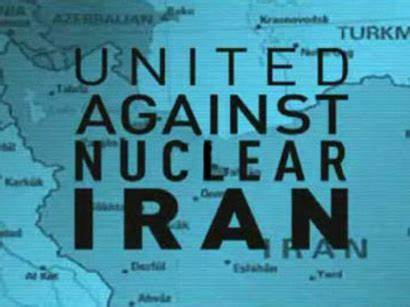Part 2 of 2 Parts (Please read Part 1 first)
Kasra Aarabi added that, “The Biden administration’s refusal to impose direct consequences on Iran – despite its consistent acts of aggression since October 7, including an Islamic Revolutionary Guards Corps proxy attack that killed three US soldiers in Syria – has emboldened the Iranian regime and made supreme leader Ayatollah Khamenei and the IRGC believe the regime can escalate without facing any repercussions.”
Gen Michael Kurilla is the commander of U.S. Central Command. He warned that the U.S. armed services committee on Thursday that if Iran became a nuclear power, it would “change the Middle East forever”. He added, “The key to deterrence is for Tehran to understand that this behavior will have consequences for it,” clarifying that “the deterrence is temporary”.
There have long been concerns about Tehran’s answers to questions about nuclear material found at three Iranian facilities and the extent to which weapons inspectors can do their job in the country. Iranian answers have been deemed as not credible by the IAEA. The US is losing patience with what it describes as Iranian stonewalling.
Laura Holgate is the US envoy to the IAEA. She told the board last week, “After five years of only limited, last-minute cooperation by Iran; five years of failure by Iran to follow through on its commitments; and five years of unresolved questions related to the presence of nuclear material at undeclared locations in Iran, we cannot allow Iran’s current pattern of behavior to continue.”
Holgate has asked for a definitive comprehensive report from Grossi on Iran’s compliance before the next board meeting in June. At that meeting, the E3 group, consisting of Britain, France and Germany, will have to consider further sanctions via the UN.
The E3 were very blunt in their assessment of the situation. In a statement, they said, “Iran has continued enriching uranium far beyond what it committed to in the Joint Comprehensive Plan of Action (JCPoA), the 2015 international nuclear deal with Iran. Iran must now take serious and meaningful steps that show a genuine desire to de-escalate. Recent public statements made in Iran regarding its technical capabilities to produce nuclear weapons go in the opposite direction.”
Corinne Kitsell is the UK ambassador to the IAEA. She said, “After so many missed opportunities and lost time, the need for the board to hold Iran accountable to its legal obligations is long overdue.”
Iran insists it is willing to negotiate a new version of the JCPoA nuclear deal and talks in the background with the deputy foreign minister, Ali Bagheri, and his European counterparts continue.
At the same time, Iran is increasingly highlighting Israel’s semi-declared nuclear weapon program. Hossein Amirabdollahian is the Iranian foreign minister. He told a Geneva disarmament conference in February that the Israeli regime was “the real source of the proliferation of weapons of mass destruction” in the region. He added that “It is necessary that the entire nuclear arsenal of this regime be eliminated, and all of its nuclear facilities be placed under safeguards and verification mechanisms of the International Atomic Energy Agency.”
Kasra Aarabi, of United against Nuclear Iran, said, “The remainder of this year will be extremely volatile, not least as there is growing mood within the regime that the next 10 months may present the best opportunity to move towards weaponization prior to a potential new administration in White House.”
